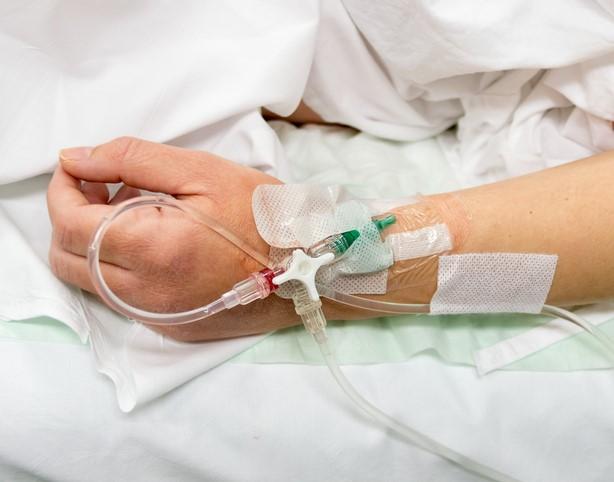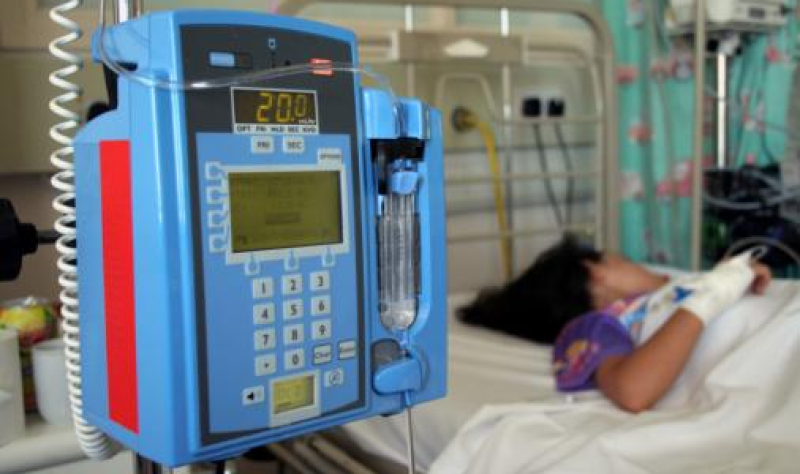Opinion | The Checkup With Dr. Wen: Should all children get the updated booster?


You’re reading The Checkup With Dr. Wen, a newsletter on how to navigate covid-19 and other public health challenges. Click here to get it in your inbox.
My column this week focused on how the evidence in favor of the new coronavirus booster is not the same for all groups. There are two groups that benefit the most: People 65 and older, and individuals with underlying medical conditions that predispose them to severe outcomes if they were to contract covid-19. These are the people the booster campaign should target.
The group for which the evidence is least convincing, however, is children.
Now, I want to be clear that kids certainly benefit from getting the primary series of the vaccine. In one New England Journal of Medicine study, two doses of the Pfizer or Moderna vaccines reduced hospitalization by nearly 83 percent. Yet, only 31 percent of 5- to 11-year-olds have received both primary doses. Among children 6 months to 4 years old, less than 10 percent have received even one vaccine dose.
I am among the minority of parents who had their children vaccinated with their primary series. I did so to reduce the chance that my two kids, ages 2 and 5, experience severe disease. But I am not planning to get either the booster at this time (the 2-year-old is not yet eligible, but the 5-year-old is).
That’s because it’s not at all clear that protection against hospitalization wanes in children and that a booster would be required. The main goal of vaccination is to prevent severe disease. Since there isn’t evidence that a booster would accomplish this in healthy kids, I think a lot of parents will choose to defer our kids’ boosters for the time being.
A secondary goal of vaccination is to reduce symptomatic infection. Many families feel strongly about this goal, and for good reason. Any illness could be disruptive to the child’s education and could be transmitted to vulnerable household members. Infection also comes with the risk of long covid. If a booster could restore protection against infection, then surely that’s a good reason to get it.
Except there’s one problem: Vaccine effectiveness against infection wanes rapidly. In another NEJM study, vaccines reduced infections among previously uninfected children by only 15.5 percent after 16 weeks. It’s unknown how long the bivalent booster would provide protection against mild or asymptomatic infection, but it’s still likely to be on the order of weeks to a few months.
(Interestingly, the same study found that among children who were vaccinated and had prior covid infection, effectiveness against reinfection remained nearly 80 percent at 4 months. This further illustrates the point I’ve been making in my column and reader Q&A: Hybrid immunity probably conveys the strongest and most lasting immunity. The vast majority of children have had covid, and if they are also vaccinated, it’s not clear what benefit they’d get from another booster.)
Casey from New York wrote to ask about her children, ages 6 and 8, who got the two doses of the vaccine plus the original booster. “Is there harm to getting them the new updated shot?”
The coronavirus vaccines are quite reactogenic, meaning that they are associated with more side effects than many other common vaccines. Most side effects are mild — such as fatigue, headache and sore arm — and resolve within 24 hours. There is a very rare possibility of myocarditis, which is inflammation of the heart muscle, that is primarily seen in teenage boys.
Every intervention, including vaccination, requires weighing risks and benefits. For the primary vaccine, the benefits far outweigh the risks because vaccination prevents severe illness (which itself could result in myocarditis). The calculus is different for the booster. For most healthy, vaccinated children, especially if they’ve had covid, the booster might not further decrease the likelihood of hospitalization. The transient protection against infection might not be worth the potential — though very low — risk.
To be sure, there will be families eager to have their kids boosted. Some might have children with chronic medical conditions. Others might decide that the temporary protection against infection is important for their household circumstances. That’s their decision, and I’m glad that families will have this choice.
From a public health perspective, though, getting kids the booster should not be a priority. The booster campaign should focus on older adults, while pediatricians continue to educate on the importance of the primary vaccine and — crucially — other routine childhood immunizations such as those for measles and polio.
Ask Dr. Wen
Newsletter subscribers are invited to submit questions to Dr. Wen. Not a subscriber yet? Click here to sign up.
“I am 61 years old. I am overweight and take blood pressure medication. I have had two covid vaccines, two boosters and plan to get the newest booster this week. It is important to me to avoid getting covid. My husband is 67 years old and takes medication for high blood pressure and cholesterol. He has had the initial covid vaccines and two boosters but seems unlikely to get the newest booster. He would like to resume taking an exercise class at our local YMCA two or three times a week, followed by working out on the machines after the class. Wearing a mask during the class or while on the machines would not be practical. Do you have any advice for us?” — Terri from Virginia
This is a tricky one. My first question is why your husband is not likely to get the updated booster. It’s really critical for older adults and people with chronic conditions to get it. It will reduce his risk of severe illness and also lower his chance of contracting covid.
My second question is whether your husband has been working out over the course of the pandemic. Many people depend on exercise classes and gym machines. If it’s a choice between these forms of exercise and nothing at all, I’d choose the former. On the other hand, if he’s just as happy walking, running and using weights at home, then resuming gym activities with others becomes less essential.
The third question is what the gym classes are like. If it’s a well-spaced out class in a large basketball court with high ceilings and good ventilation, the risk of covid transmission is low. On the other hand, if it involves a lot of people packed into a small, cramped room, the risk is higher.
If there is a choice between classes, perhaps your husband can opt for a class that’s more well-spaced out and aim to go to the gym during off-peak times. And he should ideally get the updated booster soon!
“I got the covid booster two days ago. After the needle came out, I felt wetness on my arm, looked down, and saw a trickle of blood running down my arm. The pharmacist said, ‘Oh, I guess we hit a vessel.’ He cleaned up the blood, applied a Band-Aid, and that was that. I’m 75, and this has never happened to me before. I had read that covid vaccines are less effective when delivered into a blood vessel. Should I have asked him to repeat the vaccination?” — Mike from Maryland
Pharmacists, nurses and other health-care providers who routinely inoculate patients know to follow a specific protocol: We insert the needle, then draw back on the syringe before giving the injection. That’s to make sure that we are not injecting directly into a blood vessel.
In this case, it could be that the pharmacist hit a blood vessel going into your arm. This does not mean that he injected the vaccine directly into your bloodstream. Chances of that occurring are very low; it’s far more likely that he went through a blood vessel on the way in. In short, I don’t think you need a repeat vaccine.
“I am a 73-year-old man in good health with slightly high cholesterol. I take lovastatin, which you must discontinue while taking Paxlovid. I have quizzed my primary care physician about being prepared for taking this step if I become infected with covid-19. He has said that I should not take Paxlovid because I am on lovastatin. Do you agree, and if not, how can I develop a contingency plan for Paxlovid upon a covid diagnosis?” — Ralph from Texas
By virtue of your age, you are at high risk for severe outcomes from covid-19. You should take Paxlovid if you become infected with the coronavirus.
It is true that statin medications are contraindicated with Paxlovid, but there is a protocol to address this: Paxlovid can be given if lovastatin is withheld for 12 hours before the first dose of Paxlovid. Lovastatin should not be taken during the five days of Paxlovid treatment, then it can be restarted five days after completing Paxlovid.
I advise that you discuss this plan with your physician and show him the link from the FDA website that specifically addresses your situation. If he is still unwilling to prescribe Paxlovid in the event you contract the coronavirus, use the federal “Test to Treat” finder to locate a pharmacy where the pharmacist is able to dispense Paxlovid to you directly, without a physician prescription.
The Post has also compiled Q&As from my previous newsletters. You can read them here.
What I’m reading
According to a meta-analysis in JAMA Pediatrics that summarized the results of nine studies, coronavirus vaccination during pregnancy was associated with lower rate of maternal coronavirus infections, neonatal intensive care unit admissions and stillbirth. There was no association between vaccination and adverse fetal outcomes, such as preterm birth or postpartum bleeding. This study once again highlights the benefit of vaccination for all individuals, including pregnant women.
A well-designed study out of Qatar, published in the New England Journal of Medicine, found that people infected with a pre-omicron variant of the coronavirus had only a 35.5 percent protection against symptomatic BA.4 or BA.5 reinfection. Those who had an omicron infection previously were 76.2 percent protected against symptomatic infection. These differences are likely attributed to omicron’s immune evasion properties and waning immunity over time.
New modeling from the Commonwealth Fund projects that if 80 percent of eligible Americans receive the omicron-specific bivalent boosters by the end of 2022, 90,000 deaths can be prevented. They also estimate that these boosters would avert more than 930,000 hospitalizations and nearly 26 million infections. Unfortunately, the United States is far from this goal.



